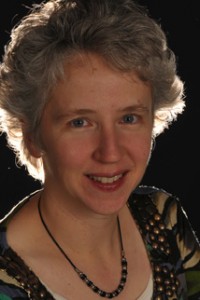Scientific Mentors
Daphne LaDue
Associate Researcher
Center for Analysis and Prediction of Storms, University of Oklahoma
Adult learning, social science research methods, and mentoring undergraduate research
Daphne earned a bachelor's in physics from a small liberal arts college before earning her master's in atmospheric science from the University of Wisconsin-Madison. She is currently completing a doctorate in Adult & Higher Education while also working full time at the University of Oklahoma.
Her dissertation research is on how meteorologists learn to forecast the weather, which is something they are *not* taught in school! During the weekdays, she has three things she works on. First, she is the PI and Director of the National Weather Center Research Experiences for Undergraduates program. Second, she assists the NOAA Warning Decision Training Branch on several projects involving forecaster training. Finally, she conducts applied research that takes advantage of her new social science research methods background.
Her recent studies have been really interesting and fun. She interviewed five forecasters and four broadcasters in the Southern Plains on how they use current weather radar systems to detect all kinds of hazardous weather. One of the most interesting things she noticed is that broadcasters were innovating uses of their station radars to best communicate hazards to the public, while the forecasters were trying to make the best possible use of the science to make the best possible warning decisions. Next she collaborated on a study of how data from an experimental, rapid update full volume radar impacts warning decision making. In that study, she and her colleagues paired forecasters in teams and had one group use ~40 second full-volume radar updates from the experimental Phased Array Radar while the other used data degraded to ~4 minute volume updates, simulating current radar capability. The study included both what forecasters actually did and what they thought they did when making warning decisions.

